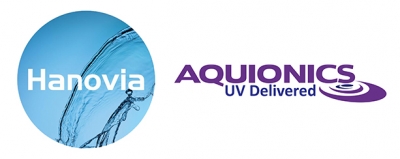How does UV light compare against other traditional technologies to remove chlorine?
For more than 100 years, chlorine has been utilised as the most common disinfectant for water processes. It is easy to produce, inexpensive and aggressively disinfects most micro-organisms. Industrial users commonly dose chlorine within their manufacturing processes, either to secure the water supply or as a CIP chemical for process equipment.
For critical applications, such as the production of pharmaceuticals, cosmetics, microelectronics and power generation, where inorganic quality needs to be of the highest standard, RO is combined with Electro-deionisation (EDI) as common practice to guarantee sub-ppm levels of salts as measured by the water's resistivity. While RO and EDI are stable technologies requiring minimal operator maintenance compared to traditional cation / anion ion-exchange beds, they do need protection from oxidising species which will affect both performance and lifespan. For this reason, the removal of free chlorine prior to RO and EDI is very important.
There have been two traditional methods for eliminating chlorine prior to RO and EDI: Activated Carbon Filtration (ACF) and Sodium Meta-Bisulphite dosing (SMB). Both methods are well proven but, while offering secure chlorine removal, exhibit certain properties and operating limitations which can impact a water treatment process. These can lead to increased bio-burden and higher operating costs (chemicals, water, operator labour) which are not ideal, especially in hygienic processes such as the manufacture of pharmaceuticals and beverages.
This webinar focuses on identifying the benefits of using Ultra Violet (UV) light as a de-chlorination technology, which would be able to replace ACF / SMB and deliver equal or better de-chlorination performance without the downsides associated with these traditional technologies.
Presented by

Tim McDougle,
Sales & Marketing Director
Tim is a water treatment specialist with 28 years' knowledge in the design and supply of water and waste water treatment solutions to industry. He has worked for Hanovia since 2012.
Prior to Hanovia, Tim worked for Veolia Water for 22 years in various commercial roles based in the UK, China and USA primarily within the Pharmaceutical, Food & Beverage and Research markets.
Tim has a BSc (Hons) in Environmental Science, majoring in Chemistry from the University of the South-West.

James Hadley,
Western Europe Sales Manager
James has worked in the water industry for 9 years supplying technical equipment around the world. His main expertise is in the Pharmaceutical and Food and Beverage markets.
His role in Hanovia is to educate customers on the use of UV technology and provide solutions for water treatment applications using Hanovia's unique range of UV treatment products.
James has a BSc (Hons) in Manufacturing and Mechanical Engineering with Business Manager from the University of Birmingham.







